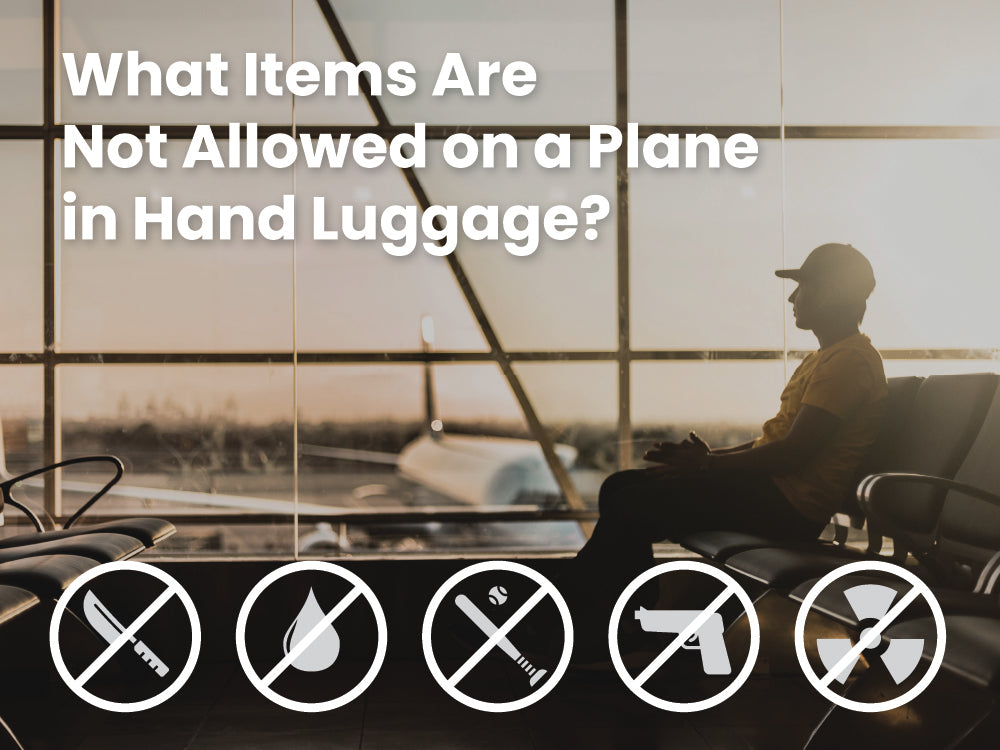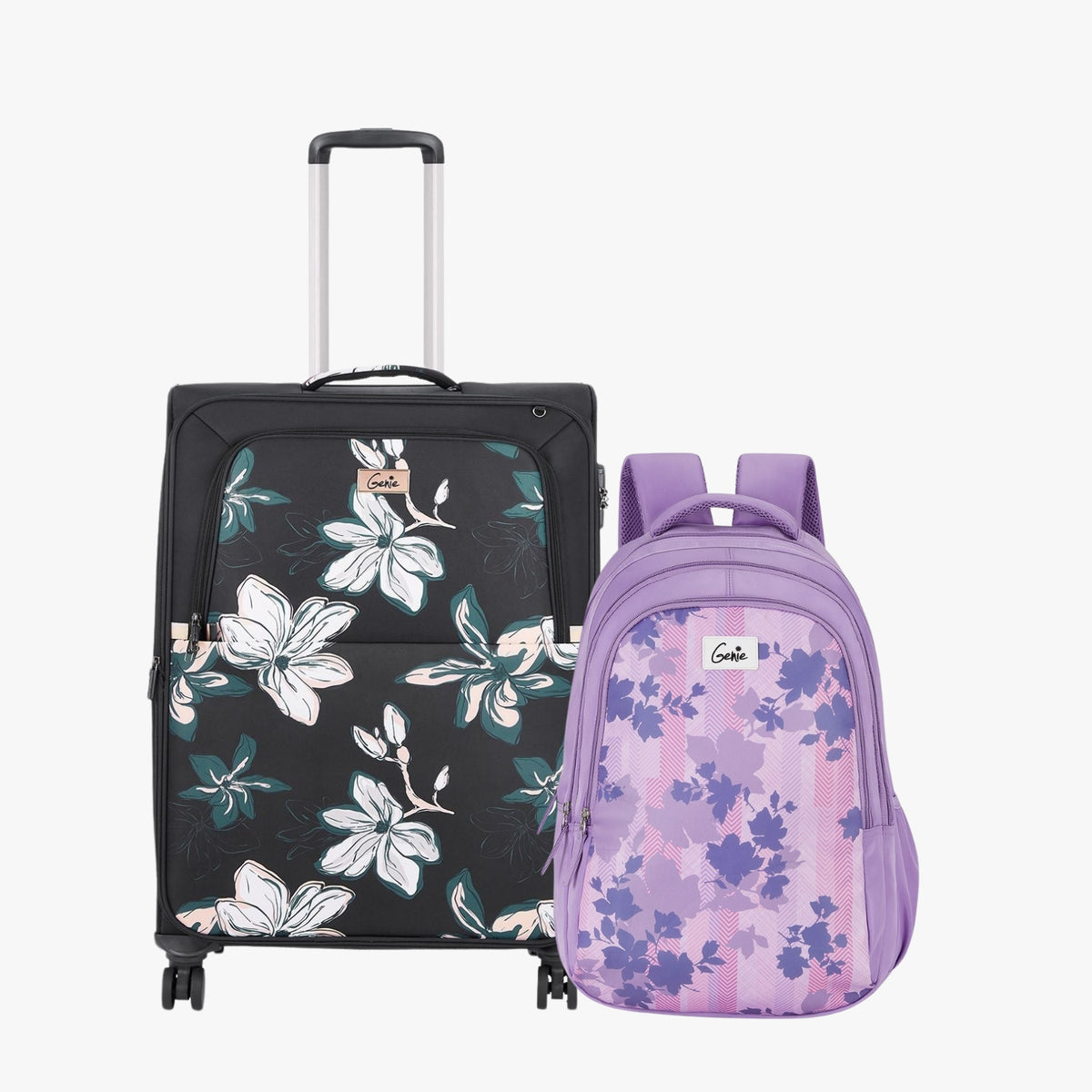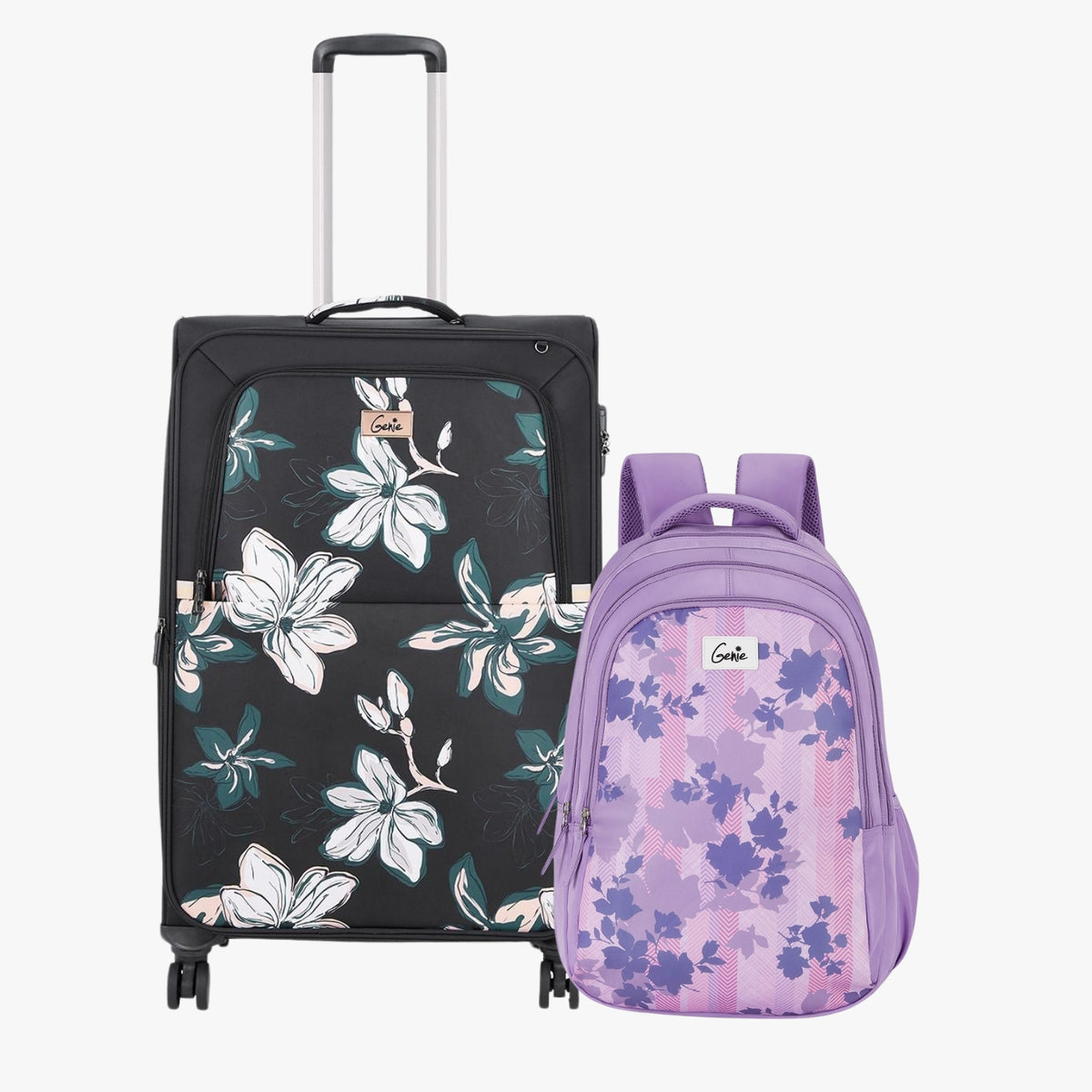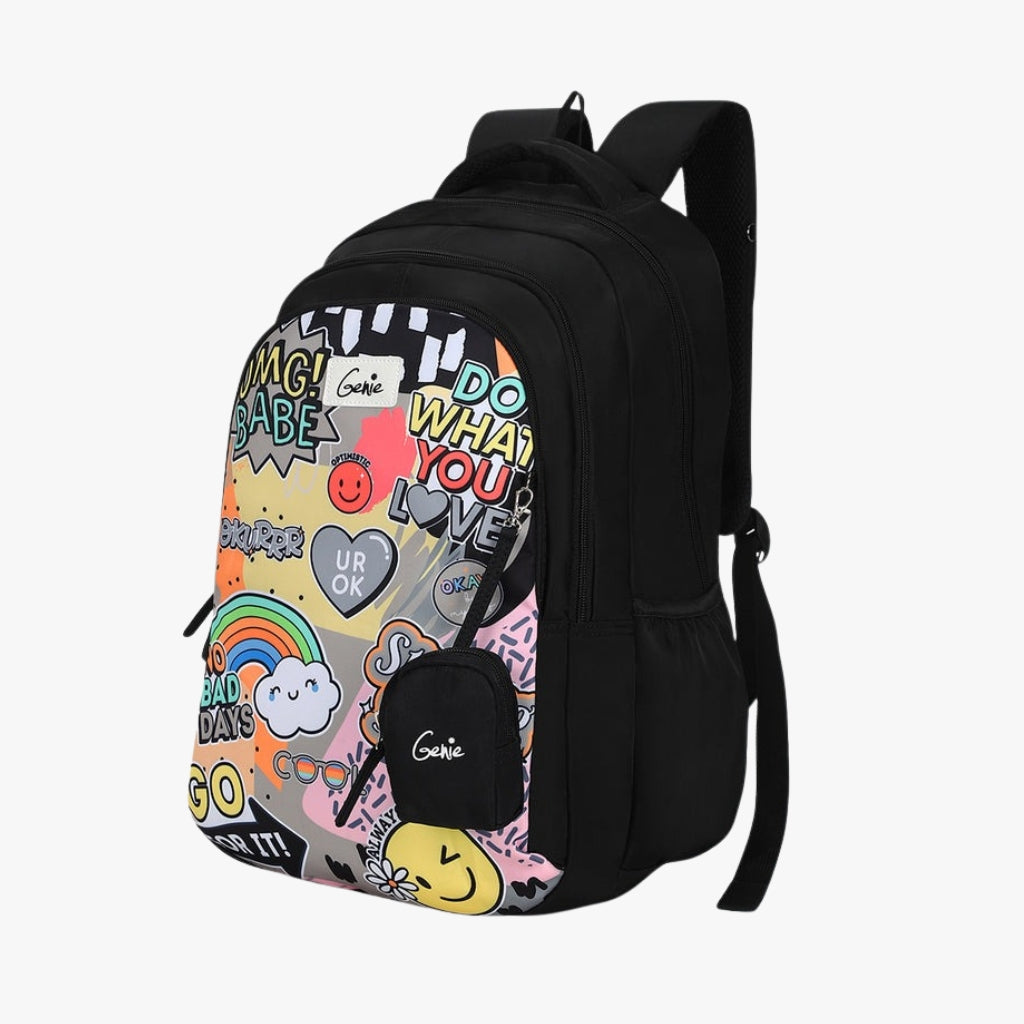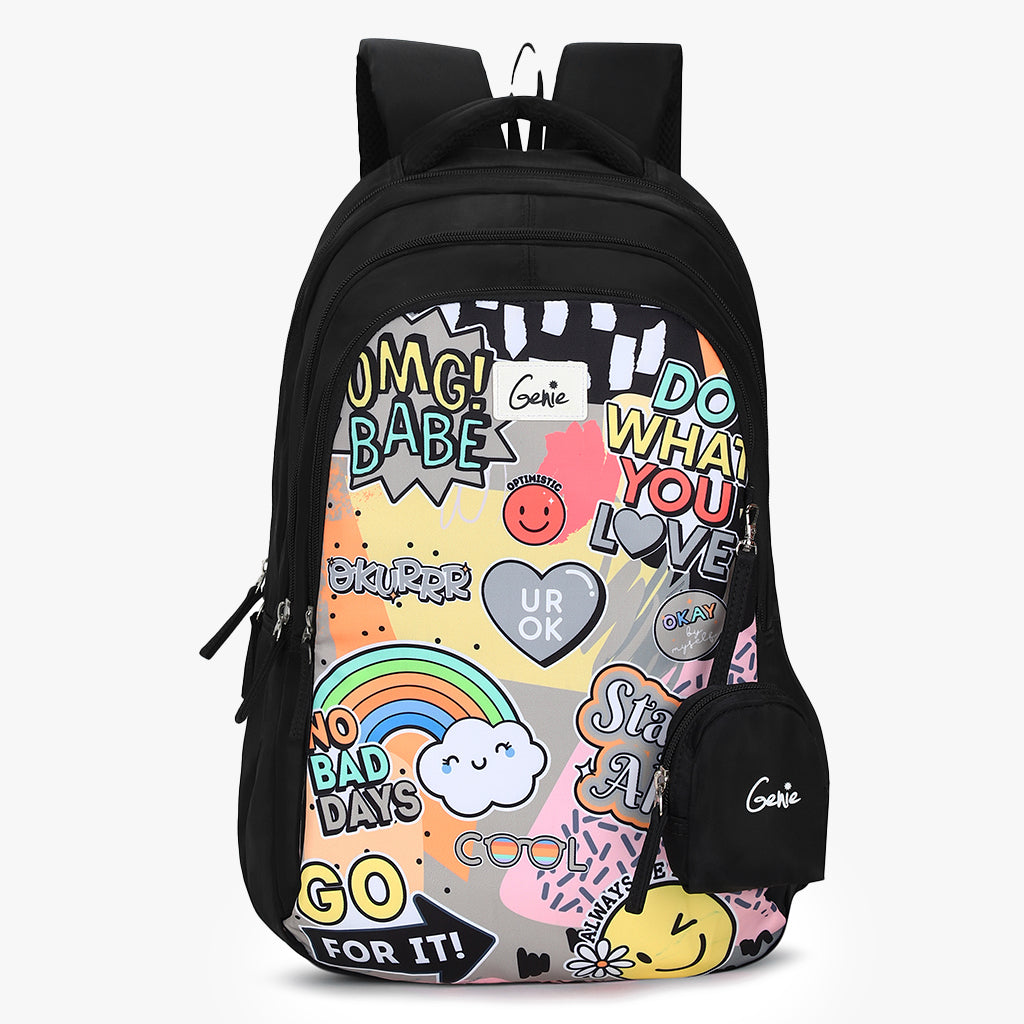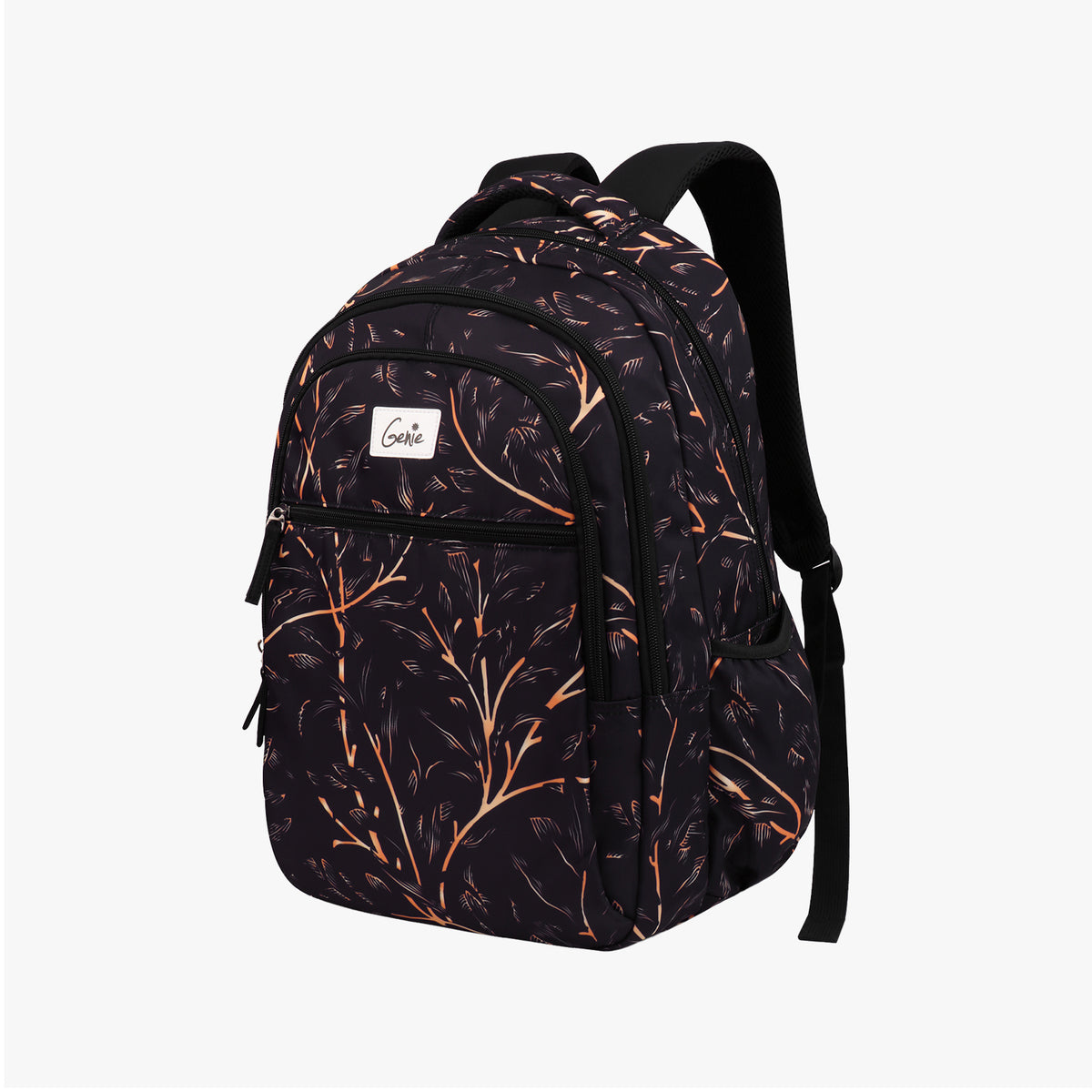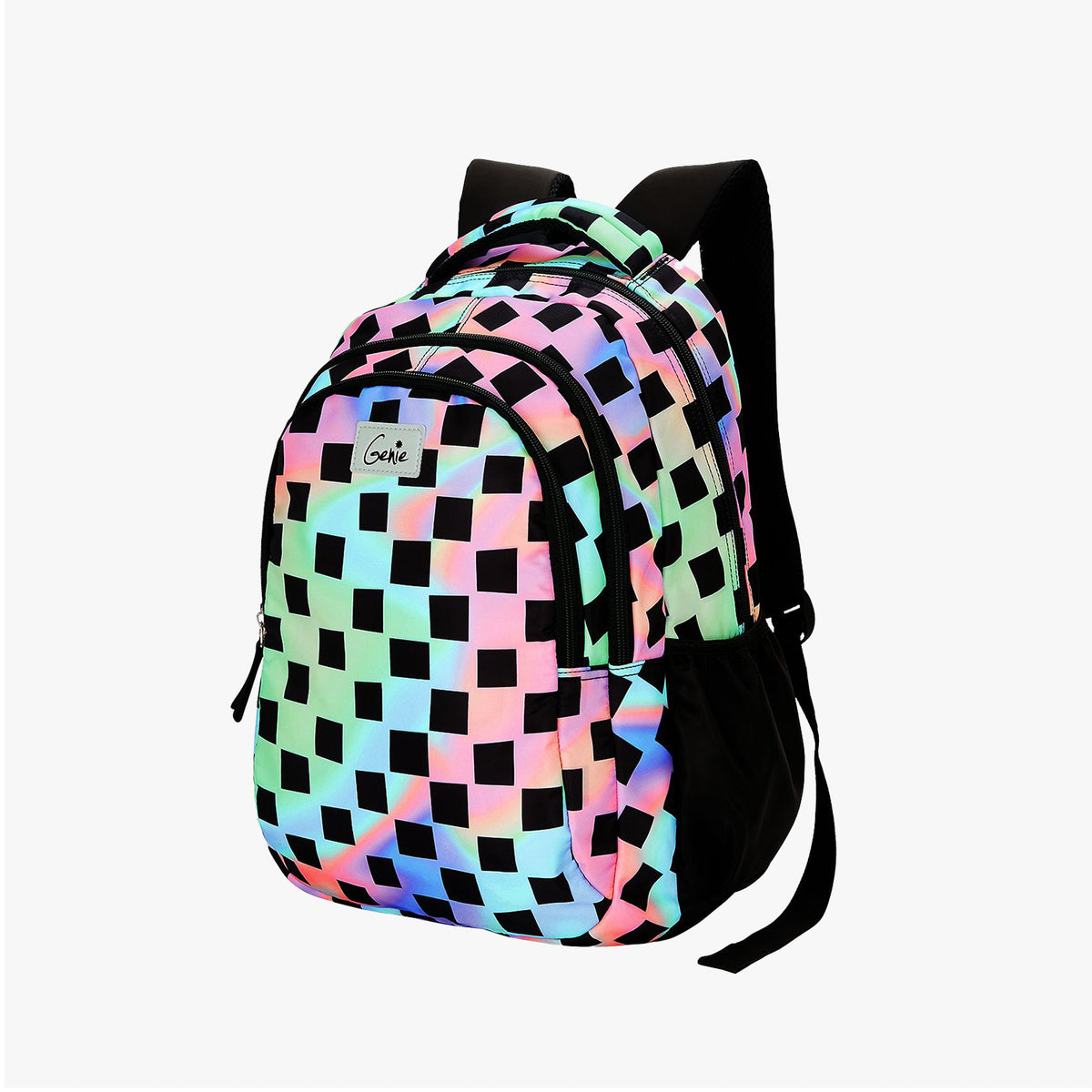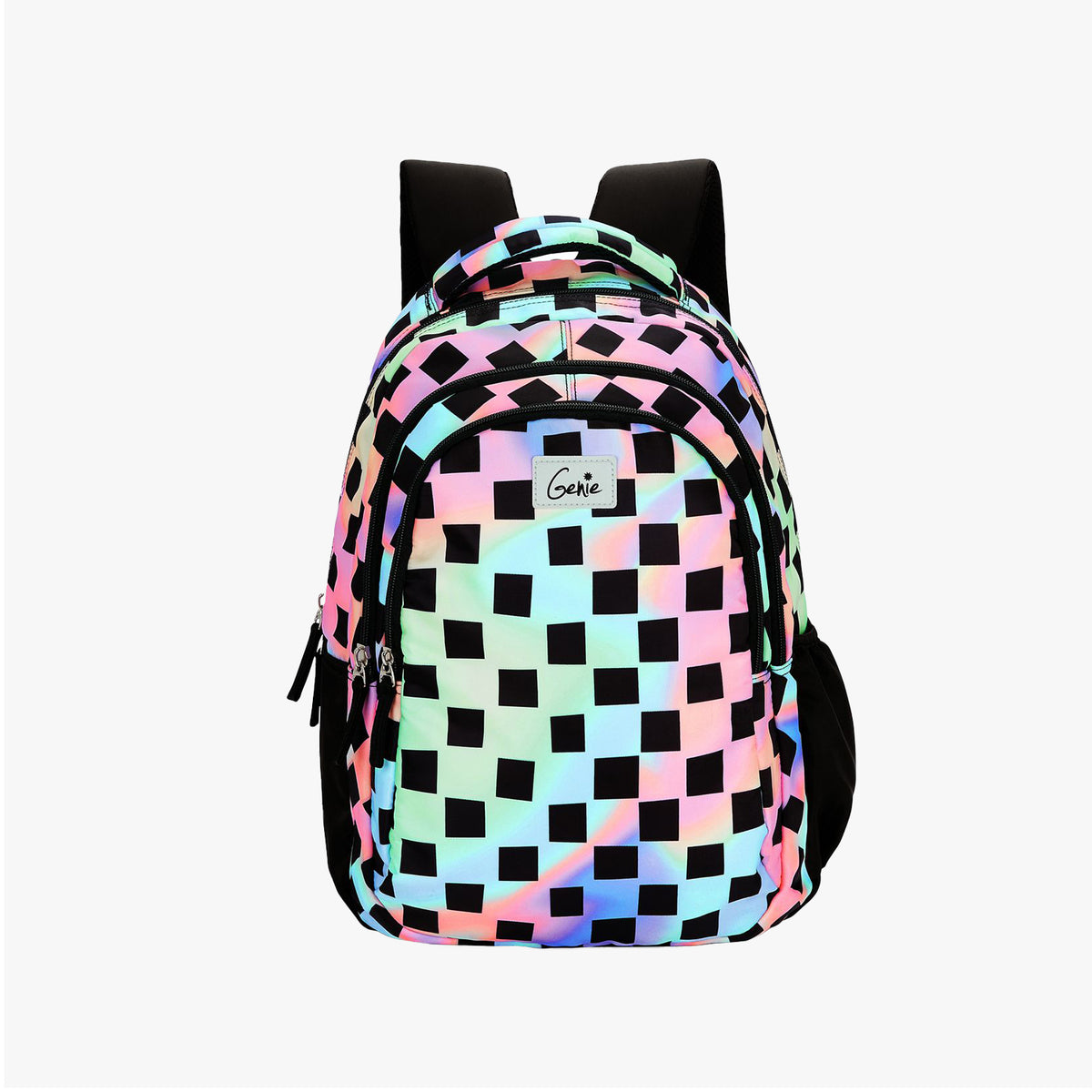Imagine this - you're eagerly waiting at the airport gate, excited for your upcoming trip. As you prepare to board the plane with your trusty hand luggage in tow, suddenly, you're stopped at security. Your heart sinks as the security staff informs you that some items in your bag are not allowed on the plane. Isn't it frustrating? But it's a common scenario that many travelers have encountered!
Understanding the list of items prohibited in cabin baggage is crucial for smooth air travel, and you must look to Genie’s trolley bags and backpacks to enhance your journeys. Through this article let's dive into the essentials to breeze through airport security checks hassle-free.
5 Things That Are Not Allowed On A Plane In Hand Luggage
- Sharp Objects: To ensure flight safety, sharp objects such as scissors, knives, nail clippers, electric razor or disposable razor blades, are a big no-no! These items must be securely packed in checked luggage to prevent any potential harm during the flight.
- Liquids and Gels: Following the 3-1-1 rule, passengers are allowed to carry liquids and gels in containers of 100ml or less, all fitting into a single quart-sized zip-top bag. To avoid confiscation, you should always adhere to size restrictions or opt for alternatives like solid toiletries.
- Sporting Equipment: Certain sporting equipment like baseball bats, golf clubs, cricket bats and martial arts equipment are not permitted in hand luggage due to safety concerns. You should make arrangements to transport these items safely as checked baggage to comply with airline regulations.
- Firearms and Ammunition: The transport of firearms and ammunition including spear guns, plastic explosives and radioactive materials, on airplanes is governed by very strict regulations. All travelers must adhere to legal requirements, declare these items at security, and ensure they are properly secured in checked luggage to prevent any potential risks during the flight.
- Hazardous Materials: Common hazardous materials such as bleach, fireworks, flammable items, lithium batteries and dry batteries pose serious safety risks and are strictly prohibited on airplanes. You must refrain from carrying these items to avoid potential dangers and consequences while traveling.
Special Considerations For Restricted Items In Your Carry-On Luggage
When packing your carry-on luggage, it's essential to consider any restricted items that may have exceptions, like medical equipment, jewelry or cash. Certain medical items, medical devices, and liquid medicines may be allowed but only with proper documentation. To ensure smooth travel, declare these medically necessary items at security checkpoints and be prepared to provide documentation or a doctor's note if requested. Proper documentation not only expedites the screening process but also ensures that you have access to your essential medicines during your journey.
Tips For Smooth Airport Security Clearance
Preparing for a smooth airport security clearance is important for making your travel experience stress-free. Here are some tips to help you achieve the same :
- First and foremost, familiarize yourself with the airline and its TSA guidelines to ensure compliance with regulations.
- Next, arrive at the airport with ample time to spare, allowing for unexpected delays or long security lines.
- Double-check your carry-on bag for any prohibited items before heading to the airport to avoid delays or potential confiscation at security checkpoints.
- Organize your belongings beforehand for easy access, including removing laptops and large electronics from your bag, or by simply carrying a reliable laptop backpack.
- Pack your liquids and gels in the designated clear bag to expedite the screening process.
- Wear easily removable shoes and avoid excessive jewelry or accessories.
- Follow instructions from TSA agents and remain patient and cooperative throughout the screening process.
- You can also consider enrolling in trusted traveler programs like TSA PreCheck or Global Entry for quick security clearance at participating airports.
Takeaway
A smooth and stress-free travel experience begins with understanding what items are not allowed on a plane in hand luggage, allowing for quick passage through airport security. Prohibited items in cabin baggage, such as sharp objects and hazardous materials, can lead to delays and inconveniences, hence one should always be familiar with the airline regulations. By adhering to all the guidelines and packing accordingly in trolley bags with tsa lock, travelers can easily maneuver through the security process and enjoy a hassle-free journey.
Frequently Asked Questions
Can I carry perfume in hand baggage?
- Yes, you can carry perfume in hand baggage as long as it complies with the airline's liquid restrictions, typically in containers of 100 ml or less and stored in a quart-sized clear plastic bag.
What food items are not allowed on flights?
- Food items such as coconut, fish, meat, ghee, pickles, oily foods, raw foods like rice and pulses, etc. are generally not allowed on domestic flights. Additionally, most food items in gel-like or liquid form, including soups, sauces, and yogurt, are prohibited or allowed up to 100ml only.
What is allowed in hand carry luggage?
- In hand luggage, passengers are typically allowed to carry essentials such as clothing, electronic devices, cell phones, personal care items (in compliance with TSA guidelines), medications and cash (with proper documentation), and small snacks or beverages purchased after the security checkpoint.

 Pink Trolley Bags
Pink Trolley Bags Black Trolley Bags
Black Trolley Bags Purple Trolley Bags
Purple Trolley Bags Pink Backpacks
Pink Backpacks Purple Backpacks
Purple Backpacks Black Backpacks
Black Backpacks Blue Backpacks
Blue Backpacks Multicolored Backpacks
Multicolored Backpacks  Unicorn Bags For Girls
Unicorn Bags For Girls 